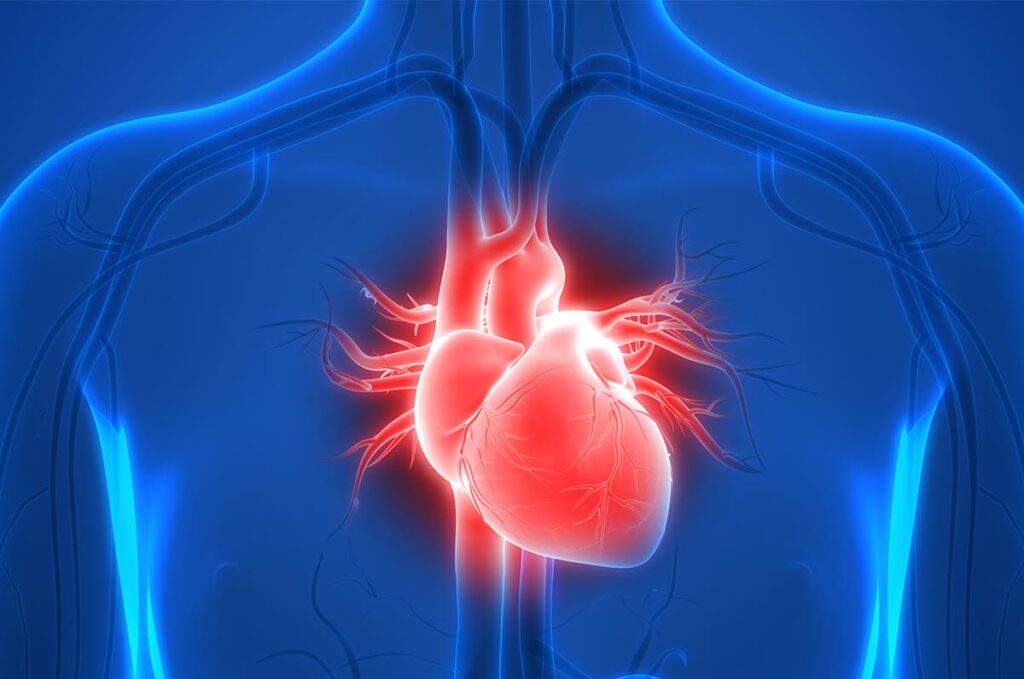
Heart health ensures optimal blood flow, energy, and organ function. Preventable conditions like hypertension, coronary artery disease, and heart failure stem from lifestyle factors such as poor diet, smoking, and inactivity. Consistent exercise, balanced nutrition, stress control, and screenings safeguard heart function and longevity.
Key Takeaways
- Heart disease includes coronary artery disease, arrhythmia, and heart failure.
- Modifiable risks: smoking, poor diet, alcohol use, obesity, inactivity, stress.
- Non-modifiable risks: age, sex, and genetics.
- Prevention through diet, regular exercise, and healthy weight maintenance.
- Regular screening for blood pressure, cholesterol, and glucose levels is vital.
- Medical intervention and technology improve detection and management.
- Myths like “only older people get heart disease” mislead many; awareness saves lives.
Introduction to Heart Health
Heart health means more than just avoiding disease. It’s about maintaining energy, preventing health problems, and living life fully. Conditions like high blood pressure and heart attacks are widespread. Every healthy choice you make helps protect your heart and reduces your risk.
- Heart health affects overall energy and vitality
- Preventive actions reduce the chance of serious heart problems
- Common heart conditions impact millions globally
- Small lifestyle changes can lead to significant benefits
How the Heart Works
The heart is a strong, vital muscle that pumps blood throughout the body. It carries oxygen and nutrients to cells and removes carbon dioxide and waste products. Efficient blood flow keeps organs and tissues healthy.
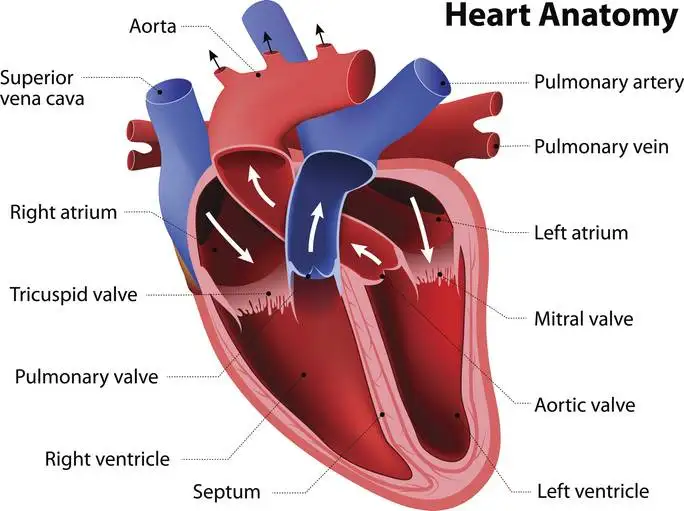
- Increased physical endurance and stamina
- Better concentration and mental clarity
- Defense against sudden heart-related events such as heart attacks or stroke
Cardiovascular Diseases Overview
Cardiovascular diseases (CVD) refer to a group of conditions that affect the heart and blood vessels, impacting how well your heart functions and how blood flows through the body.
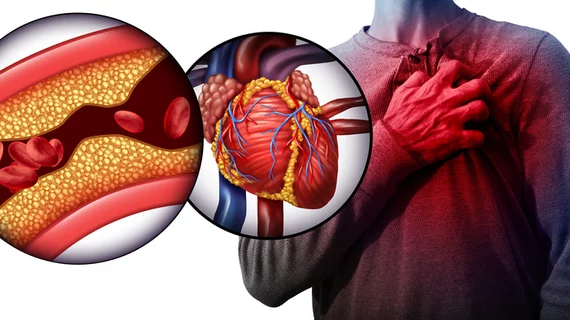
Coronary Artery Disease
This is the most common type of heart disease, where the arteries supplying blood to the heart muscle become narrowed or blocked. This reduction limits the oxygen and nutrients reaching the heart, which can cause chest pain (angina) or lead to a heart attack when severe. The narrowing usually happens due to plaque buildup inside the artery walls.
Arrhythmias
Arrhythmias are irregular heartbeats, meaning the heart may beat too fast, too slow, or with an uneven rhythm. This disrupts the heart’s ability to pump blood efficiently. Some arrhythmias are harmless, while others can cause dizziness, fatigue, or even sudden cardiac arrest if left untreated.
Heart Failure
Heart failure occurs when the heart muscle weakens and cannot pump enough blood to meet the body’s demands. This leads to fluid buildup, swelling, and shortness of breath. Heart failure doesn’t mean the heart has stopped, but it signals a serious decline in heart function.
Major Risk Factors for Heart Disease
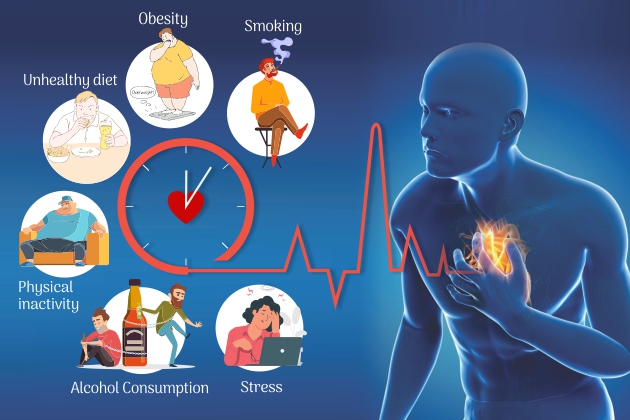
Understanding the factors that increase your risk for heart disease is essential for prevention. Some risks are within your control and can be changed, while others are fixed and cannot be altered.
Modifiable Risk Factors
These are lifestyle or health conditions that you can improve or control to lower your heart disease risk:
- Smoking: Tobacco use damages the lining of blood vessels, increases blood pressure, and reduces oxygen in the blood. Quitting smoking significantly lowers risk.
- Habitual Alcohol Use: Drinking alcohol in excess can raise blood pressure and cholesterol levels, both harmful to the heart. Moderation is key.
- High Blood Pressure (Hypertension): Constantly high blood pressure forces the heart to work harder, leading to thickening and weakening of the heart muscle. Managing blood pressure protects the heart.
- Obesity: Excess body weight puts extra strain on the heart and increases the chance of developing diabetes and high blood pressure.
- High Cholesterol: High levels of LDL (bad cholesterol) can build up in arteries, causing blockages that reduce blood flow to the heart.
- Diabetes: Elevated blood sugar damages blood vessels over time, increasing the risk of heart attacks and strokes. Good control of diabetes is crucial.
- Physical Inactivity: Lack of exercise weakens the heart muscle and contributes to weight gain, high blood pressure, and poor cholesterol levels.
- Poor Diet: Diets high in saturated fats, salt, sugar, and processed foods contribute to obesity, high cholesterol, and hypertension.
Non-Modifiable Risk Factors
These are factors you cannot change but need to be aware of in managing risk:
- Genetics: Family history of heart disease can increase your chances, as some genetic traits influence cholesterol levels and blood pressure.
- Age: Risk of heart disease rises with age because arteries naturally stiffen and heart function can decline over time.
- Sex: Men generally have a higher risk of heart disease earlier in life, although risk for women increases and may equalize after menopause.
Assessing Your Personal Heart Disease Risk
Knowing where you stand helps tailor prevention and treatment plans:
- Review Family History: Notice if close relatives have had heart disease, which could suggest inherited risk factors.
- Get Regular Screenings: Tests like cholesterol levels, blood pressure, and blood sugar help detect risks early.
- Use Risk Calculators: Tools combine your age, family history, and health habits to estimate your heart disease risk over the next 10 years or lifetime.
Heart-Healthy Lifestyle and Strategies
Adopting healthy habits daily offers the strongest protection for your heart. These strategies often reverse early heart problems when followed consistently.
Eating for a Healthy Heart
A heart-friendly diet focuses on nutrient-rich whole foods and limits harmful ingredients. Experts recommend:
- Choose whole grains, leafy greens, and colorful vegetables for vitamins and fiber
- Use lean proteins such as fish, poultry, and beans to supply essential nutrients
- Limit salt, saturated fats, and added sugars which raise blood pressure and cholesterol
- Include nuts and seeds for healthy fats that support heart function
- Eat small portions and emphasize variety to maintain balanced nutrition
Exercise and Movement
Regular physical activity strengthens the heart, controls weight, and lowers risk:
- Aim for at least 150 minutes of moderate aerobic exercise weekly, such as brisk walking, cycling, or swimming
- Add strength training to build muscle, improve metabolism, and support weight management
- Vary your routine to stay motivated and prevent boredom
- Fit in sessions that suit your schedule even short, frequent activities add up to benefit your heart
Managing Your Weight
Maintaining a healthy weight reduces heart strain and risks for diabetes and hypertension:
- Monitor your body mass index (BMI) to track changes accurately
- Set realistic, achievable goals for weight loss or maintenance
- Focus on gradual, sustainable habits rather than quick fixes or extreme diets
Reducing Stress and Supporting Mental Health
Stress triggers hormone release that strains the heart. Managing stress supports long-term cardiovascular health:
- Practice mindfulness, meditation, or yoga to calm the mind and body
- Talk with friends, family, or professionals for emotional support
- Schedule short breaks and relaxation periods during busy days.
Sleep Quality and Heart Health
Restful sleep is vital for heart recovery and blood pressure regulation:
- Adults need 7 to 8 hours of consistent, high-quality sleep nightly
- Maintain regular sleeping schedules and avoid screen exposure before bed to improve sleep quality
Alcohol and Smoking
Both alcohol and tobacco harm heart health:
- Limit alcohol consumption and avoid binge drinking to prevent raising blood pressure and damaging the heart
- Quitting smoking quickly reduces risk, but support through programs or counseling can improve success rates
- Replace unhealthy habits with positive ones such as exercise or hobbies
Medical Prevention and Intervention
Medical prevention and intervention play a vital role in managing heart disease risk, especially when lifestyle changes alone are not enough. Early diagnosis and proper treatment can prevent complications and improve quality of life.
- Medications: Doctors may prescribe drugs to control blood pressure, lower cholesterol, or manage diabetes. These medicines reduce strain on the heart and help prevent heart attacks and strokes.
- Regular Checkups: Routine visits allow healthcare providers to monitor heart health, adjust treatments, and catch new risks early through tests like electrocardiograms, blood work, and blood pressure measurements.
- Screening Tests: Tests such as cholesterol panels, glucose levels, and imaging studies assess the condition of your heart and blood vessels. They guide personalized care plans.
- Vaccinations: Immunizations against flu, pneumonia, and now COVID-19 protect the heart by preventing infections that can worsen cardiovascular conditions, especially in older adults or those with existing heart disease.
- Surgical or Procedural Interventions: In severe cases, procedures like angioplasty, stenting, or bypass surgery may be necessary to restore blood flow or repair damage.
Myths and Misconceptions about Heart Health
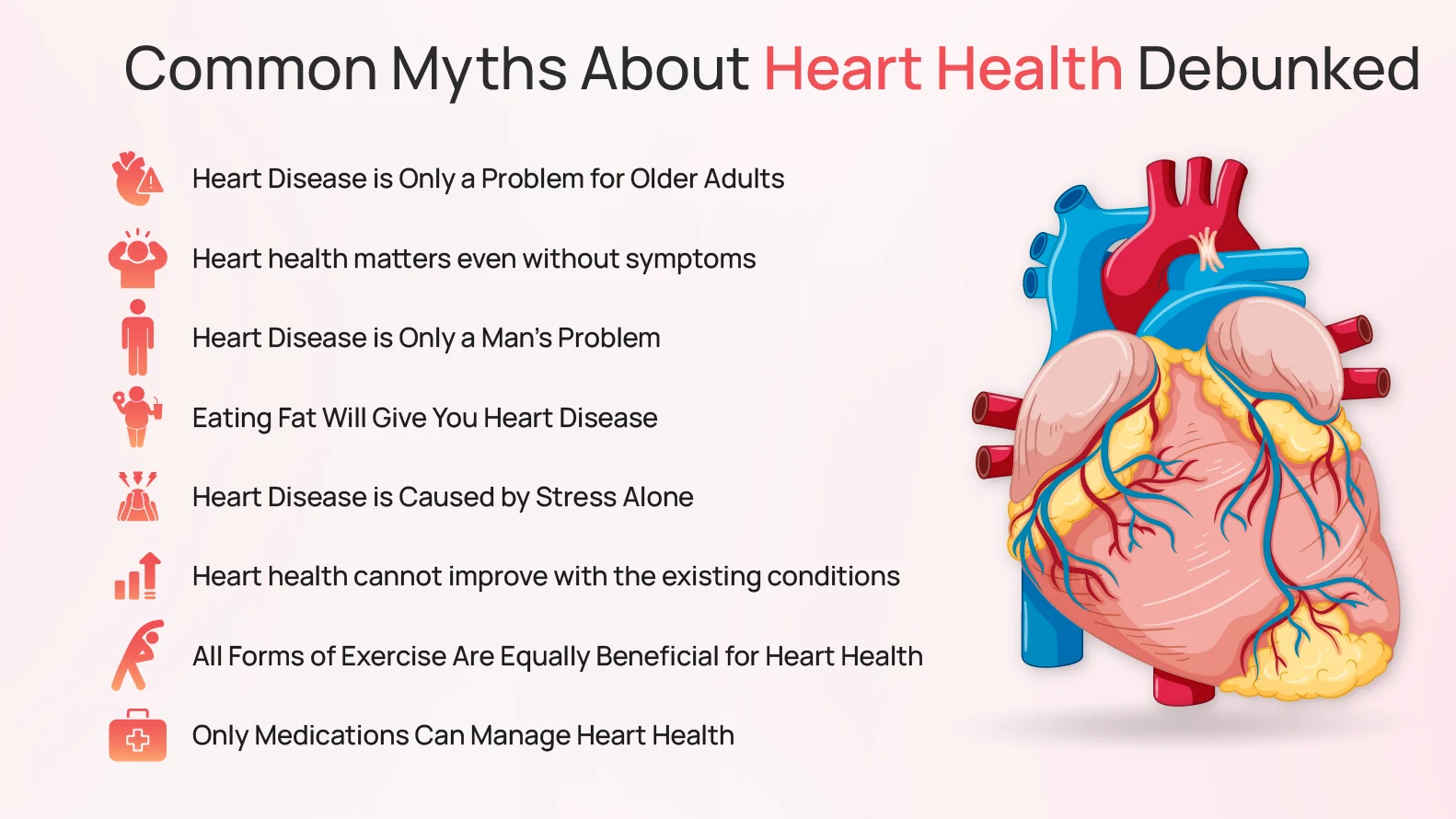
Many mistaken beliefs about heart health can lead you to underestimate your risk or overlook important prevention steps. Clearing up these myths allows you to take proper action.
- Only older people get heart disease: Younger people can develop heart disease, especially with risk factors like obesity, smoking, diabetes, or a family history.
- Supplements alone can prevent heart disease: No pill can take the place of balanced nutrition, exercise, and healthy habits. Supplements may help in some cases, but they should support not replace core lifestyle changes.
- All fats are bad for the heart: Healthy fats from sources like olive oil, nuts, seeds, and fish are important for heart health. Trans fats and excess saturated fats are the ones to limit.
- Heart disease always has warning signs: Many heart issues can develop quietly, without symptoms, until they become serious. That’s why regular health checks matter.
- Women aren’t at risk until old age: Heart disease is the leading cause of death for both men and women, and women should pay attention to symptoms and screening, especially after menopause.
- If you’re thin, you’re protected from heart disease: Even people at a healthy weight can develop high blood pressure, cholesterol problems, or diabetes all raise heart risk.
- Regular exercise means you can eat anything: Physical activity is crucial, but poor dietary choices can still harm the heart, regardless of fitness level.
- Heart problems are always inherited: Family history increases risk, but lifestyle choices play a major role in developing heart disease.
- Chest pain is the only warning symptom: Heart issues may present as fatigue, indigestion, jaw pain, or shortness of breath, especially in women.
- Once diagnosed, nothing can be done: Many heart conditions can be improved and even reversed with medication, diet, exercise, and medical procedures.
Special Considerations for Specific Populations
Heart health advice often requires adjustment based on individual factors such as age, gender, and ethnicity to be most effective.
- Women: Women may experience different or less typical symptoms of heart disease, especially after menopause when their risk rises significantly. Awareness of unique signs like fatigue, nausea, or jaw pain is important.
- Young Adults: Starting healthy habits early in life is crucial. Even though heart disease often shows up later, risks build over time. Early focus on diet, activity, and avoiding smoking pays off in the long run.
- Ethnic Groups: Certain populations have higher risks due to genetics, cultural habits, or health disparities. For example, African Americans often have higher rates of hypertension. Tailored screening and prevention plans are recommended.
Technology and Digital Tools for Heart Health
Advances in technology provide new ways to monitor and improve heart health conveniently:
- Mobile Apps: Track blood pressure, physical activity, food intake, and medication reminders. Apps make self-monitoring easier and more accurate.
- Wearable Devices: Smartwatches and fitness bands monitor heart rate, sleep quality, and daily steps, providing insights into your cardiovascular health.
- Telemedicine: Online consultations increase access to healthcare professionals, allowing quick advice and follow-up without leaving home.
Case Studies: Real-Life Success Stories
Commitment to heart health changes yields measurable results. For example:
- John, Age 50: By walking daily and adopting a Mediterranean diet, John reversed his high blood pressure and improved energy.
- Priya, Age 39: Priya lowered her cholesterol by replacing processed snacks with nuts, fruits, and vegetables, alongside regular exercise.
Conclusion
Heart health supports energy, vitality, and protection against serious diseases. Common conditions like coronary artery disease and heart failure often arise from preventable risks, including smoking, poor diet, inactivity, obesity, high blood pressure, stress, and diabetes. Non-modifiable risks such as age, sex, and genetics also play a role, making awareness and screening vital. Preventive strategies include heart-friendly eating, regular exercise, stress management, restful sleep, and avoiding harmful substances.
Medical interventions, screenings, and modern technology further aid prevention. By adopting consistent, sustainable habits and staying informed, you strengthen heart function, reduce risks, and enhance overall wellness for a healthier future.
FAQs
What are the first signs of heart disease?
Chest discomfort, unusual tiredness, and breathlessness. If you notice these symptoms, seek medical advice.
How often should I get my heart checked?
Most adults should have their heart health assessed yearly. Your doctor may suggest more frequent tests if your risk is higher.
Which diet is best for heart health?
Diets rich in fruits, vegetables, whole grains, lean proteins, and healthy fats support your heart. The Mediterranean diet is widely recommended.
Is moderate alcohol consumption safe for the heart?
Small amounts sometimes offer minor benefits, but regular or heavy consumption increases risks. Talk to your doctor about what’s safe for you.
Can psychological stress really harm my heart?
Yes, ongoing stress releases chemicals that increase blood pressure and damage blood vessels. Managing stress is vital for heart health.
What role does exercise play in preventing heart disease?
Movement improves circulation, controls weight, and strengthens the heart. Consistent exercise is one of the best protections.
Are supplements like omega-3 effective for heart health?
Omega-3 from food can help, but supplements are not a substitute for healthy eating. Ask your doctor before adding any supplements.
How can I lower cholesterol naturally?
Eat more fiber, healthy fats from nuts and fish, reduce saturated fat, and stay active. These habits lower cholesterol over time.
Do genetics guarantee heart disease?
Genetics matter, but lifestyle changes can lower risk even with a family history. Regular checkups are important for those with higher genetic risk.
How does diabetes impact heart health?
Diabetes can damage blood vessels and raise the risk of heart attack, stroke, and other heart diseases. Control blood sugar, monitor cholesterol, and exercise regularly.
Reference
- Healthline: Healthy Heart Tips
25 practical tips for heart health, including nutrition, exercise, and lifestyle changes.
URL: https://www.healthline.com/health/healthy-heart-tips - National Heart, Lung, and Blood Institute (NHLBI): Heart-Healthy Living
Overview of heart health, risk factors, and prevention strategies from the U.S. government.
URL: https://www.nhlbi.nih.gov/health/heart-healthy-living - World Heart Federation: CVD Prevention
Global guidelines for cardiovascular disease prevention including diet and physical activity.
URL: https://world-heart-federation.org/what-we-do/prevention/ - American Heart Association: Diet and Lifestyle Recommendations
Detailed recommendations on diet and lifestyle for preventing and managing heart disease.
URL:https://www.heart.org/en/healthy-living/healthy-eating/eat-smart/nutrition-basics/aha-diet-and-lifestyle-recommendations - World Health Organization (WHO): Fact Sheet on Cardiovascular Diseases
Key facts and prevention methods for heart disease worldwide by WHO.
URL:https://www.who.int/news-room/fact-sheets/detail/cardiovascular-diseases-(cvds) - UCI Health: 4 Tips to Improving Heart Health
Simple, actionable tips from heart health experts at UCI Health.
URL: https://www.ucihealth.org/blog/2024/02/improving-heart-health - PMC Journal: Heart-Healthy Diet for Cardiovascular Disease Prevention
Peer-reviewed article summarizing evidence-based diets for heart disease prevention.
URL: https://pmc.ncbi.nlm.nih.gov/articles/PMC10128075/
Philip Vitale holds an MS in Exercise Physiology from the University of Florida (2015) and is a CSCS (NSCA) with 10 years coaching athletes from amateurs to pros. He focuses on performance nutrition, recovery, and safe ergogenic aids. Philip has supported athletes through EXOS and collegiate programs and delivered workshops on supplement quality and anti-doping. Verify certifications via the NSCA directory; see client outcomes and talks.

